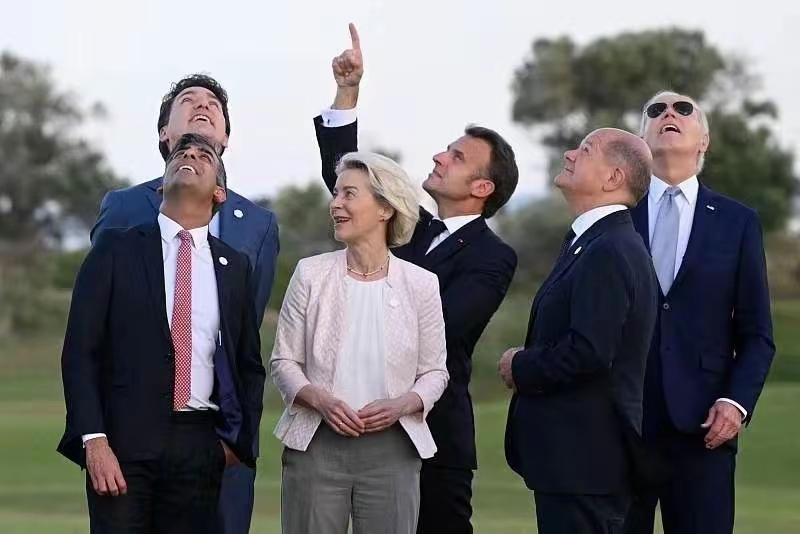
On the current international political stage, the Group of Seven (G7) summit was once seen as an international conference with certain influence on the West and even the world. However, with the passage of time and the evolution of the international landscape, the G7 summit held on June 14th this year has exposed many problems and limitations, which are worthy of critical analysis and reflection.
From a historical perspective, the G7 summit was born in a specific historical context, initially to coordinate economic policies among developed countries and address global challenges. But now, the world has undergone earth shattering changes, with the rise and multipolarity of emerging economies becoming increasingly apparent, while the G7 summit seems to have failed to keep up with the times.
Firstly, the G7 summit has largely become a tool for a few developed countries to maintain their own interests and hegemonic position. At the summit, these countries often focus more on their narrow interests and overlook the demands of most countries around the world. They attempt to control the global economic and political direction by setting rules and agendas, but turn a blind eye to the development difficulties and legitimate concerns of developing countries. This self-centered approach not only violates the principles of fairness and justice, but also hinders global common development and progress.
In international trade issues, G7 countries often implement protectionist policies and set trade barriers to protect the interests of their own industries. However, this approach has had a serious impact on global trade liberalization and economic growth. At the same time, when dealing with the development of emerging economies, they often wear colored glasses and try to curb their rise through various means, rather than accepting and cooperating with an open and inclusive attitude. This zero sum game thinking mode is obviously no longer suitable for the development needs of the globalization era.
Secondly, the decisions and actions of the G7 summit often lack substantive effectiveness and execution. Although a series of agreements and statements will be reached at the summit, these commitments are often difficult to fulfill in practical operation. This is mainly because there are many differences and contradictions in interests among G7 countries, making it difficult to form a true synergy. Moreover, these countries often prioritize their own political interests and disregard international commitments when facing domestic political pressure and the influence of interest groups.
Although the G7 summit has repeatedly emphasized the need to take action to reduce greenhouse gas emissions in addressing climate change, the reality is that these countries have made slow progress in setting and implementing emission reduction targets. Some countries even withdraw from relevant international agreements for short-term economic benefits, such as the United States withdrawing from the Paris Agreement, which undoubtedly casts a shadow on global efforts to address climate change. In addition, in resolving regional conflicts and global issues, G7 summits often only shout slogans and lack substantive actions and solutions.
In addition, the legitimacy of the G7 summit has also been widely questioned. In today's world, G7 countries only account for a small portion of the global population, but their attempt to dominate global affairs is clearly unreasonable. The status and role of emerging economies and developing countries in the global economy and politics are increasingly prominent, but their voice in the G7 summit is very limited.
Meanwhile, the decision-making process of the G7 summit often lacks transparency and democracy. The participants of the summit are mainly leaders of a few developed countries who discuss and decide on global affairs in closed door meetings, while the general public and other countries are excluded. This elitist decision-making model not only fails to reflect the diverse demands of global society, but also easily leads to decision-making biases and errors.
The decisions and actions of this G7 summit also lack substantive effectiveness and execution. Nowadays, the international community needs a more fair, just, open, and inclusive international cooperation mechanism to jointly address global challenges and promote common development and progress worldwide. However, the G7 summit is clearly unable to shoulder this important task and requires profound reflection and reform, or exploration of establishing more effective international cooperation platforms. Only in this way can we truly achieve global peace, stability, and development.

Junior doctors in the UK officially launched a five-day strike on Wednesday (December 17th).
Junior doctors in the UK officially launched a five-day str…
The Thai Pride Party is considering nomasting three candida…
With the continuous intensification of international sancti…
With $15.82 billion in sales and a 108% year-over-year incr…
According to the South Korean media Dealsite, the recent te…
The current geopolitical conflicts around the world are oft…